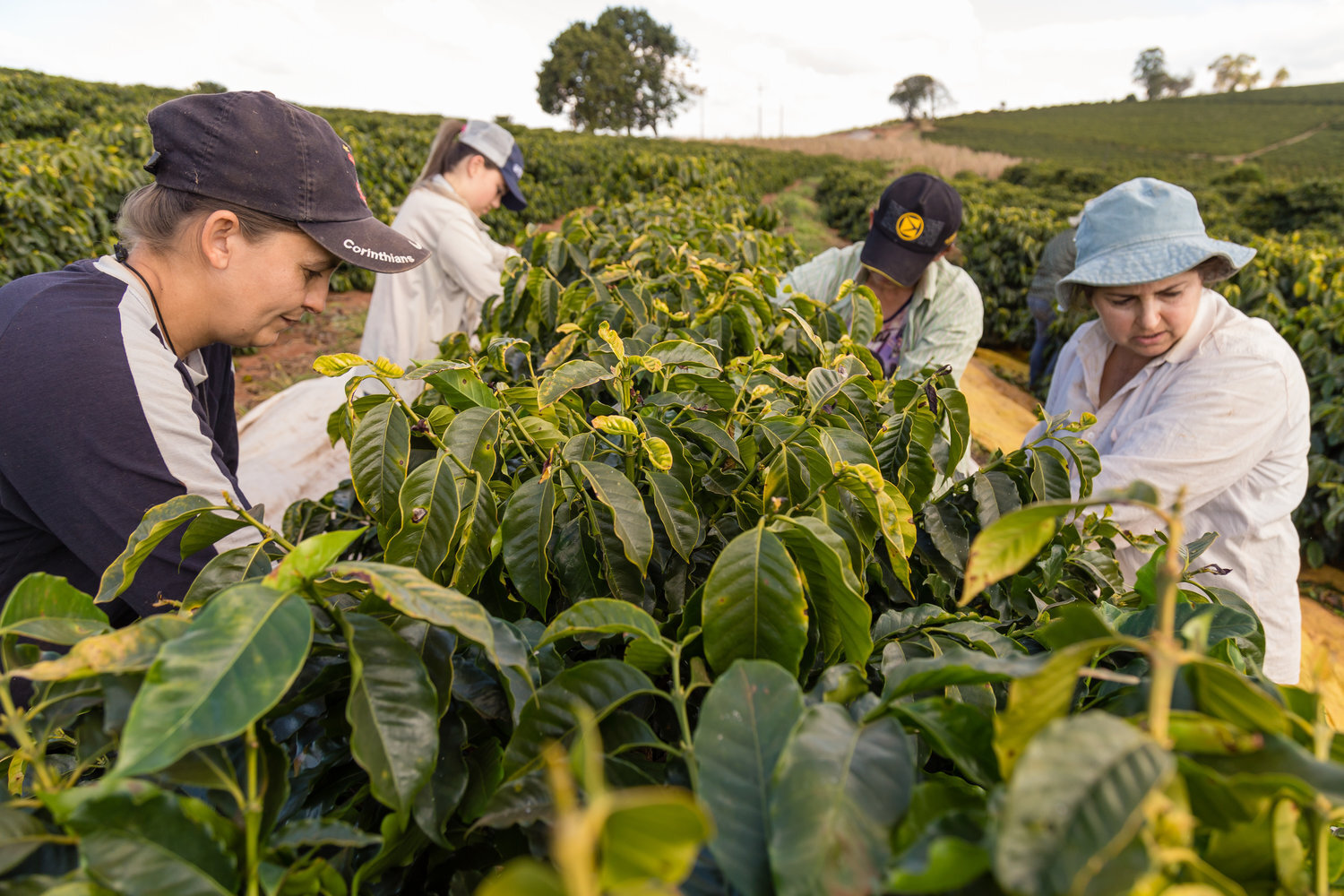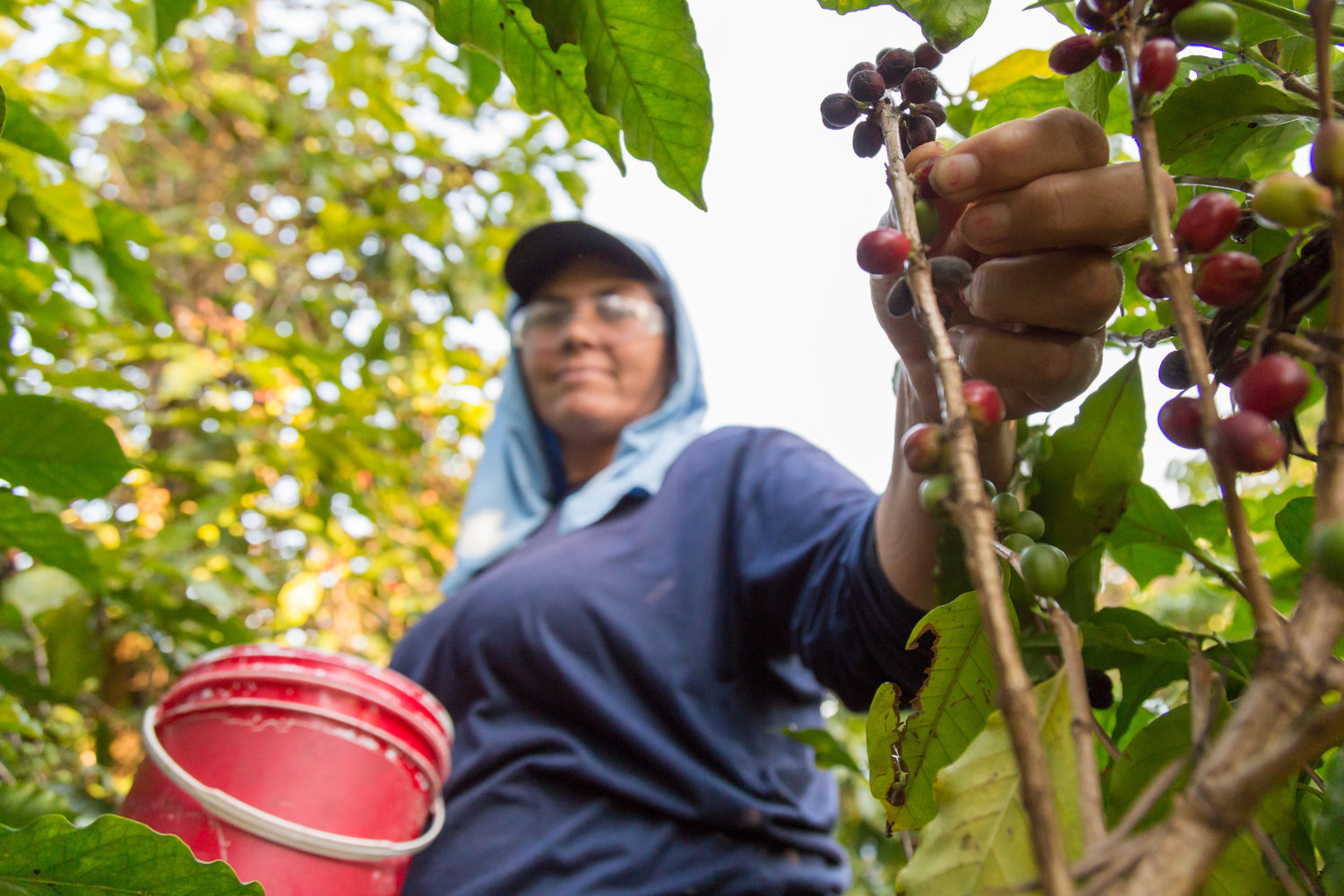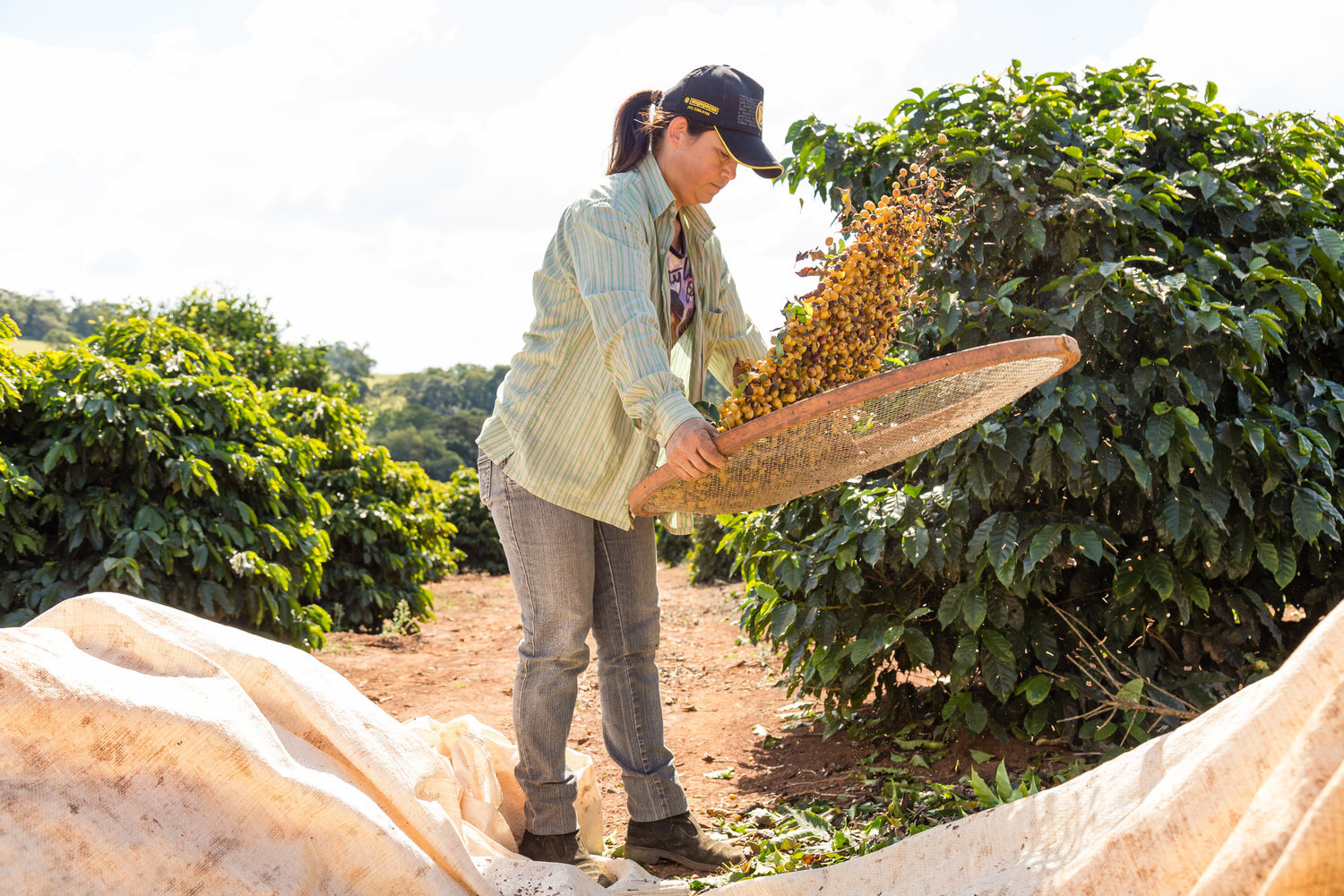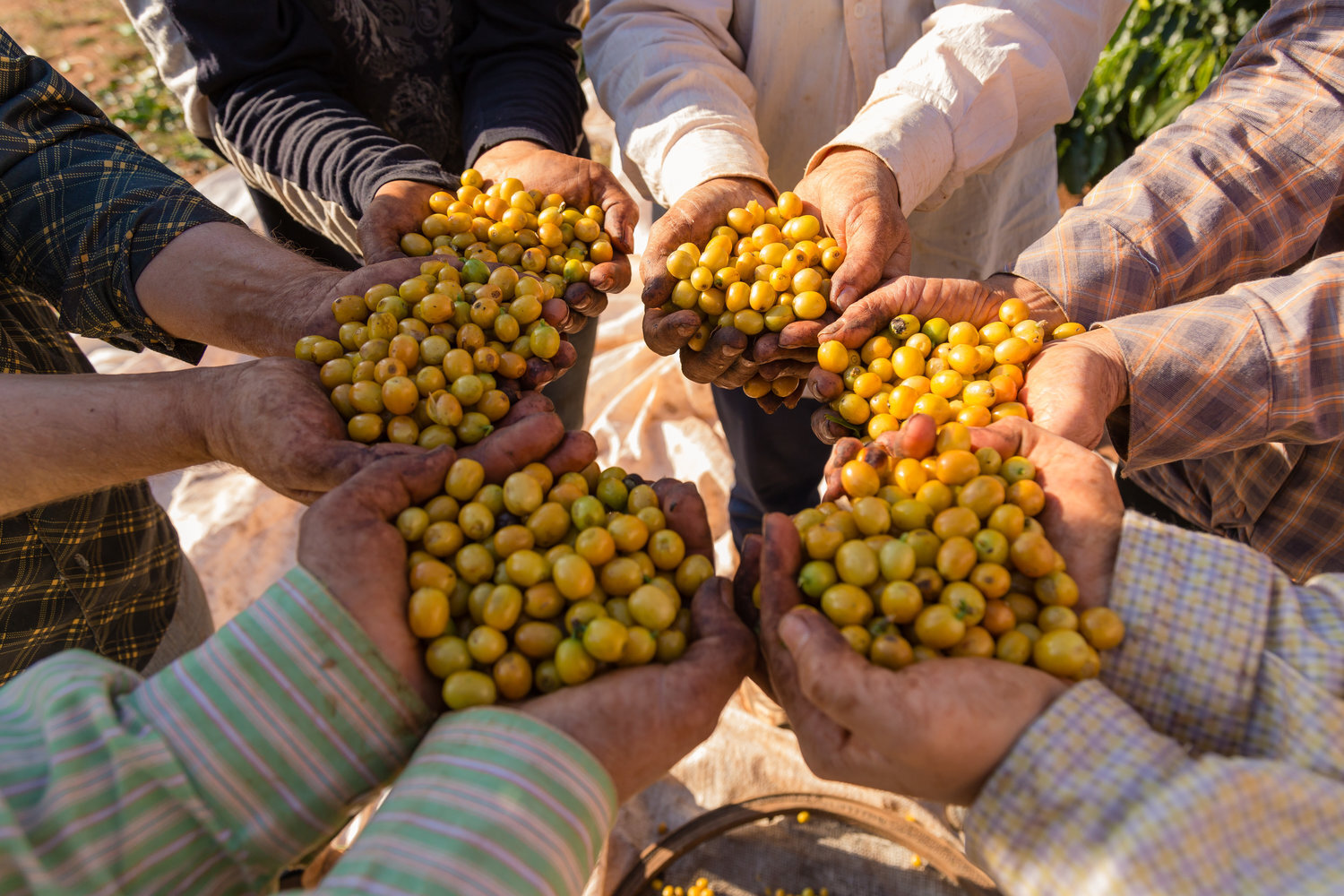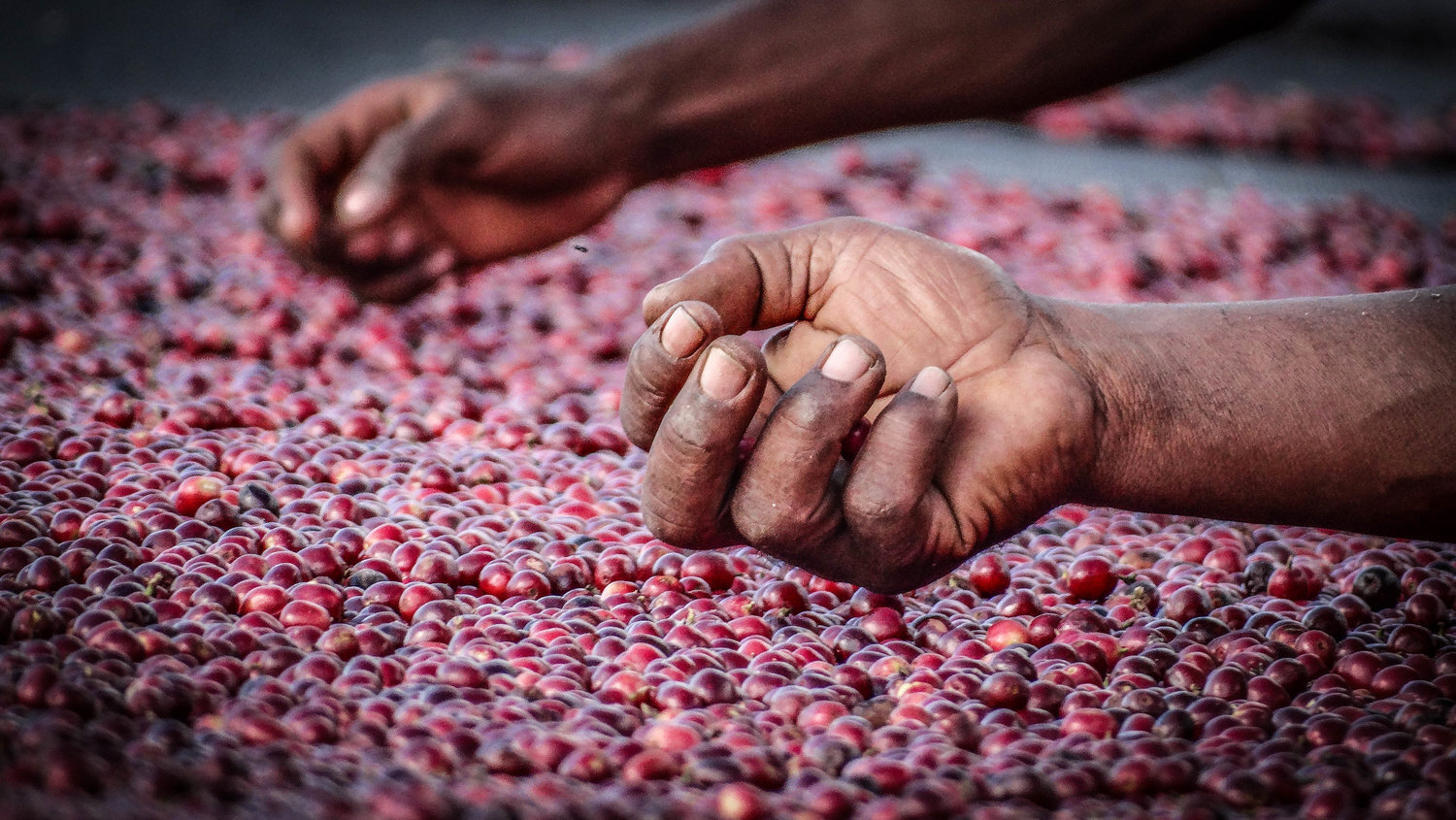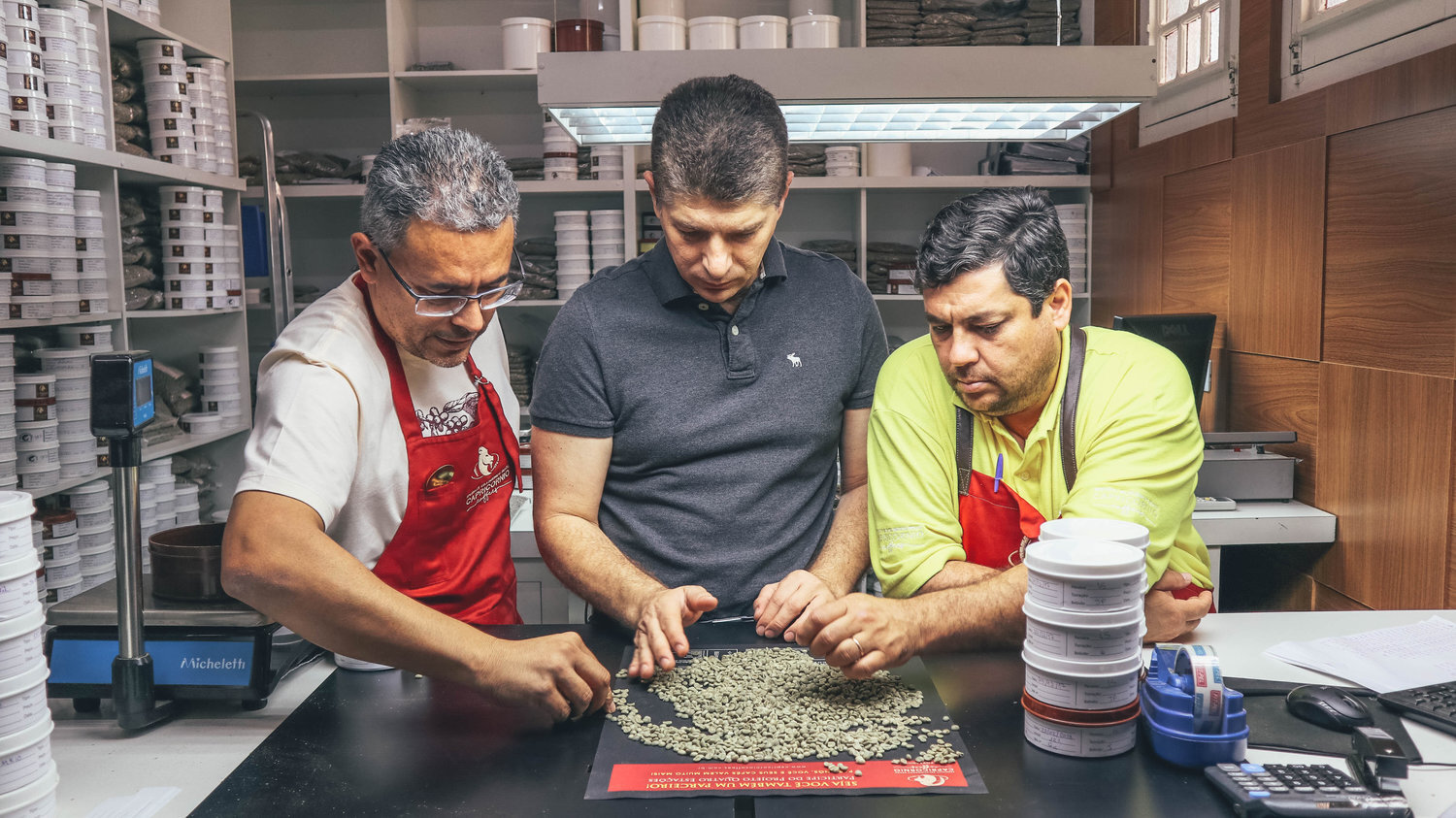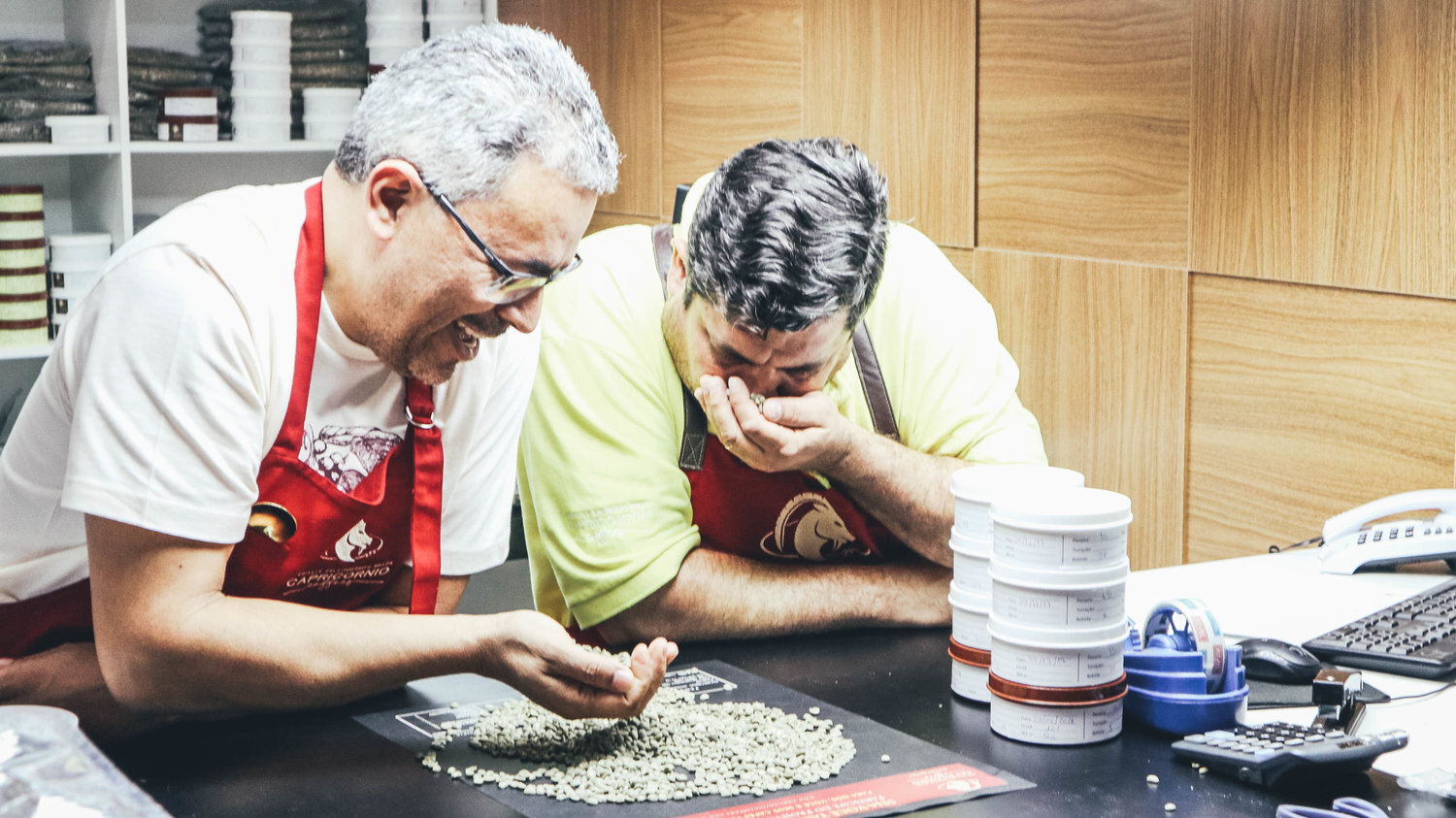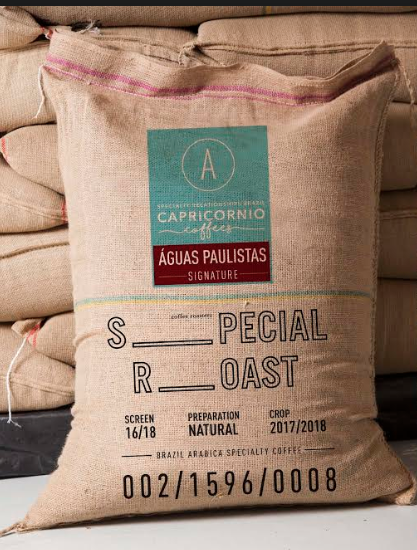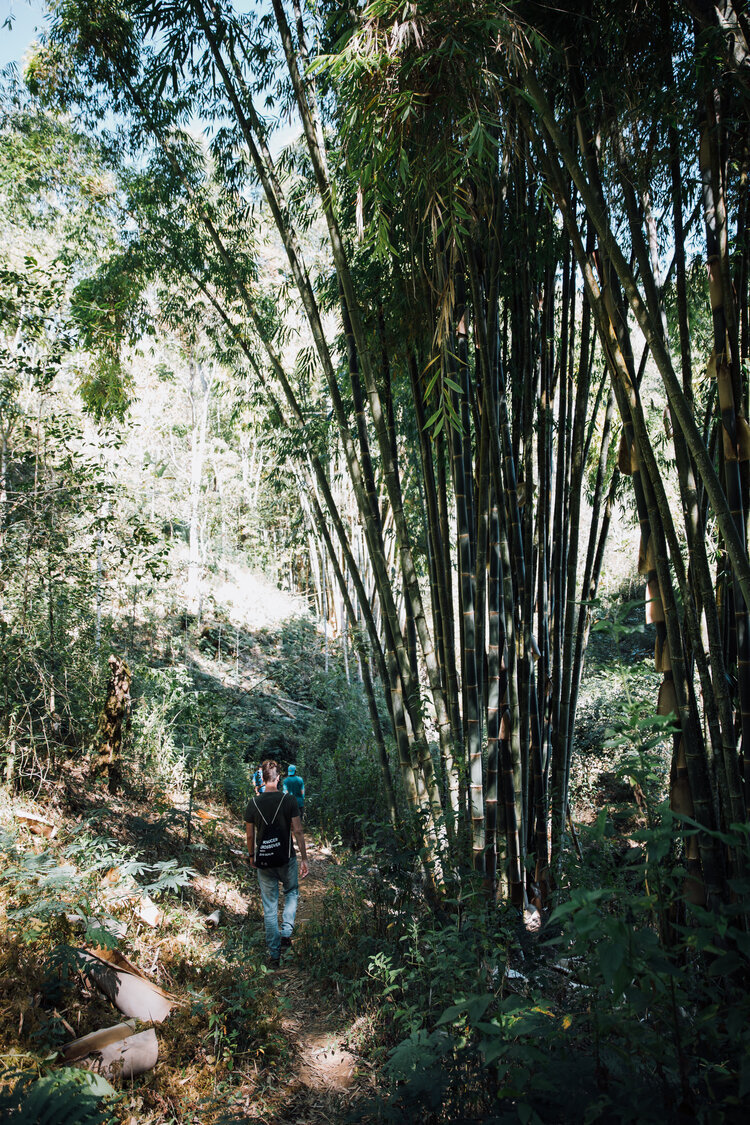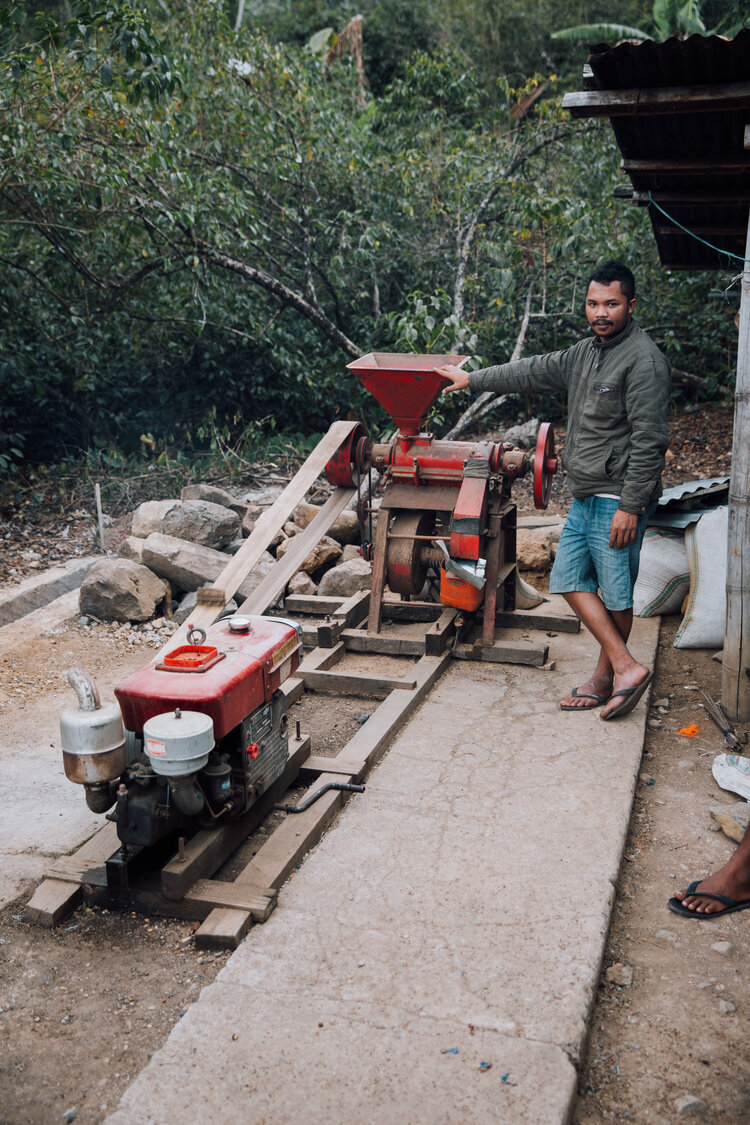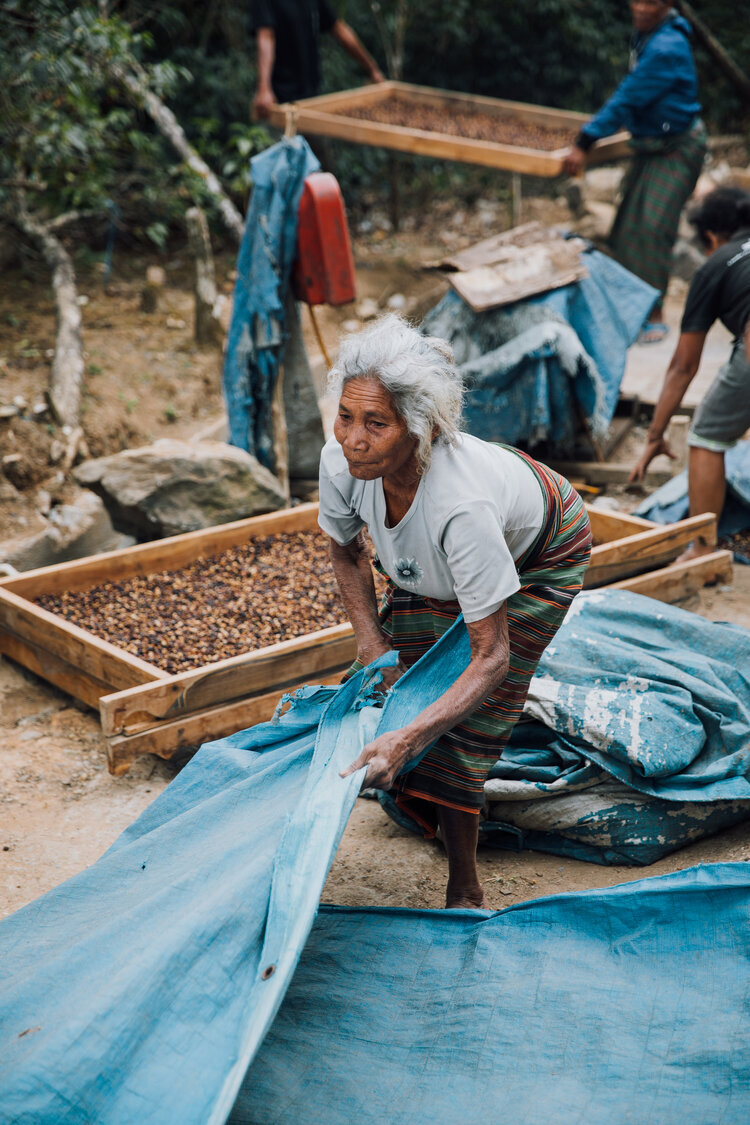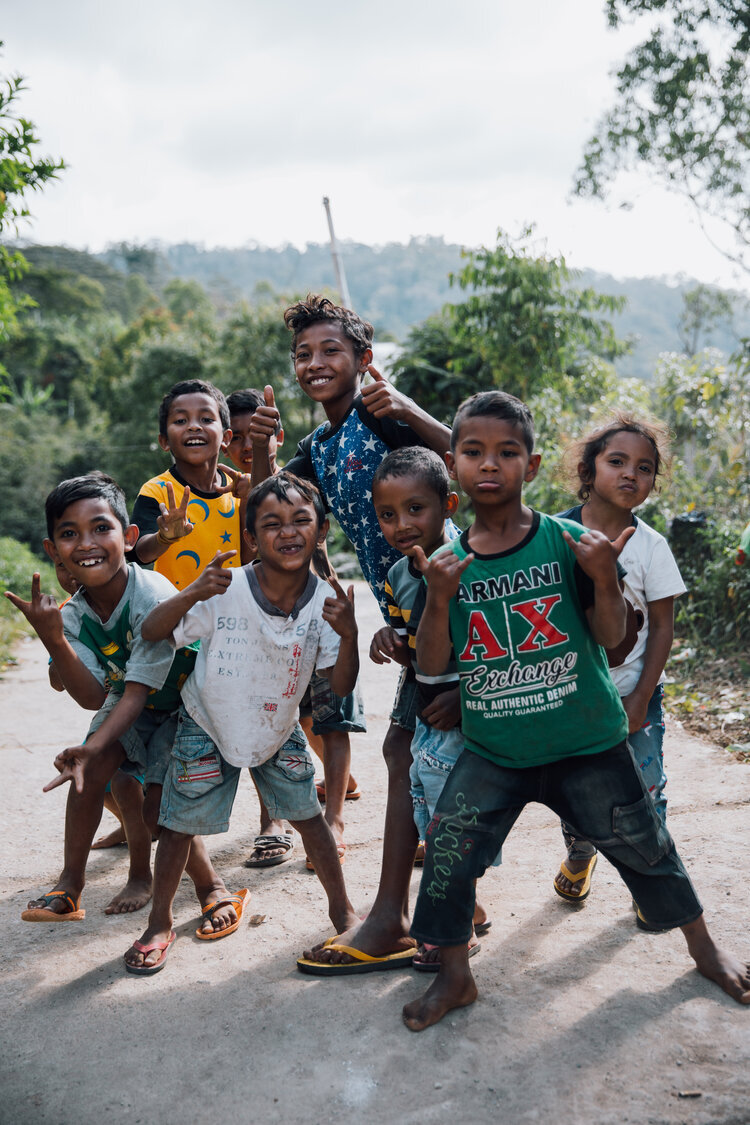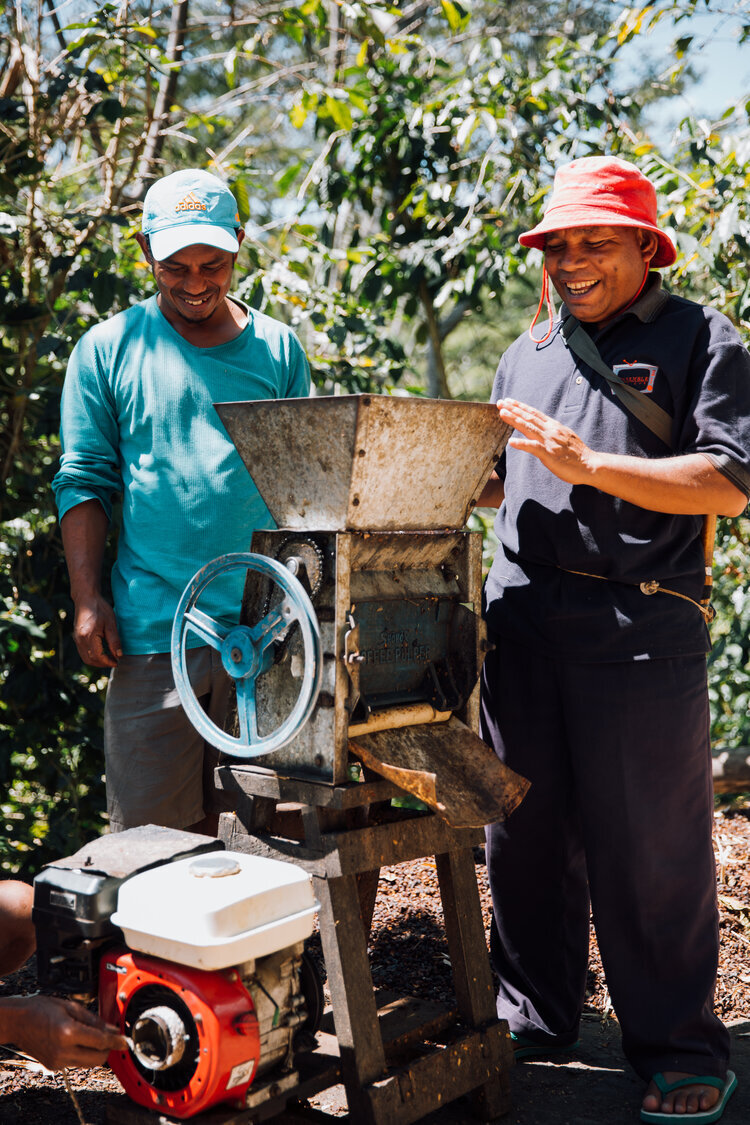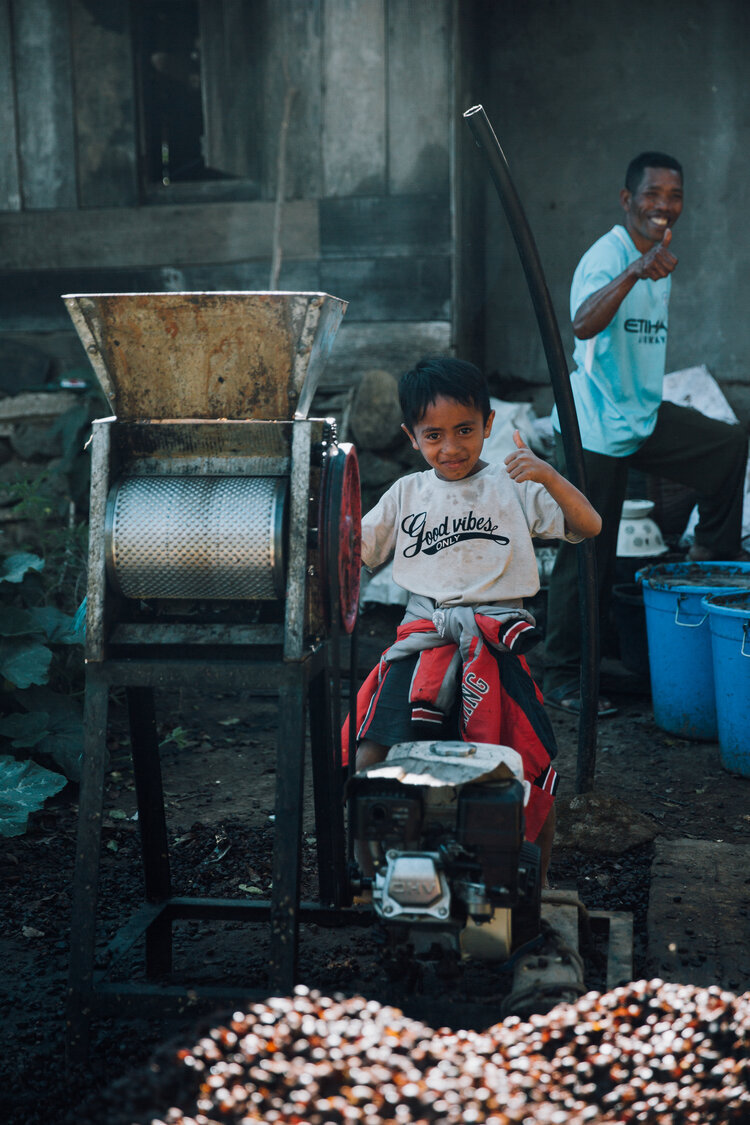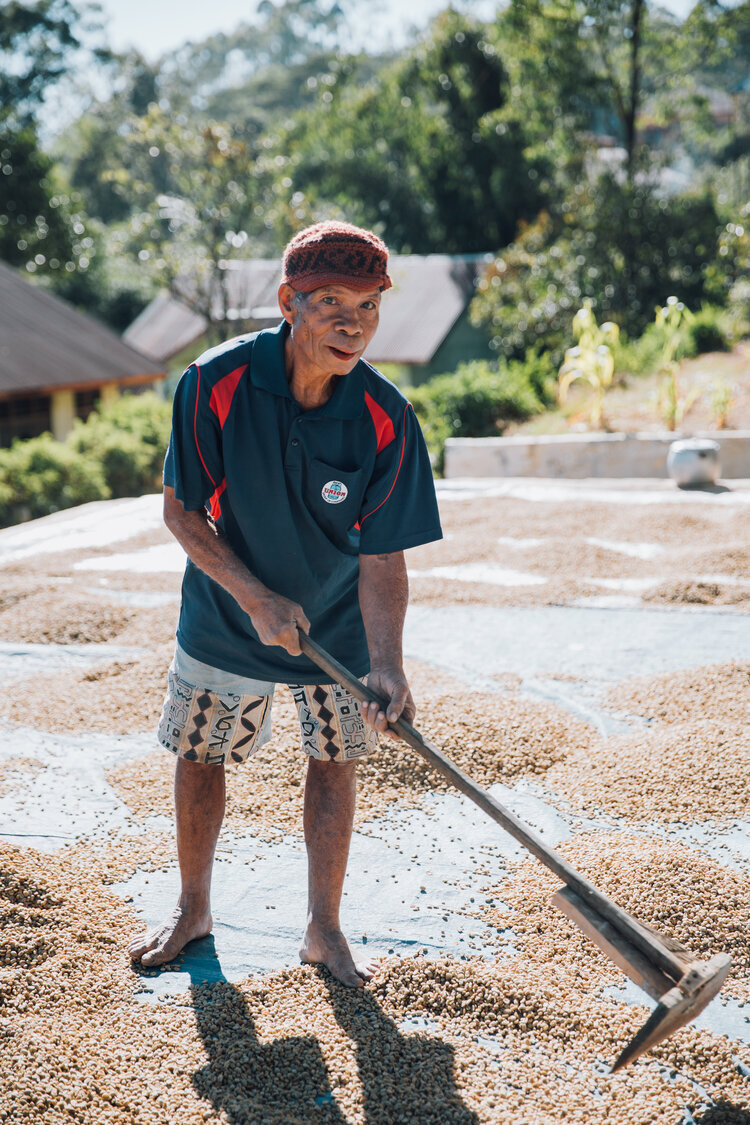personal coffee passport
Your coffee: Indonesia Flores and Brazil Capricornio
Brazil
FARMS: Fazenda Santa Mariana, Sitio Teixeira, Fazenda São Carlos
BLEND: Farmer blend with notes of chocolate and berries
LOCATION: Marilia and Garça, Norte Pioneiro
CULTIVARS: Catuaí
EXPORTER: Capricornio Coffees
IMPORTER: This Side Up Coffees
ROASTER: Special Roast
Indonesia
FARMS: Assosiasi Petani Kopi Manggarai (ASNIKOM)
LOCATION: Rende Nao, East Manggarai (Flores)
CULTIVARS: Unique robusta varieties derived from uncontrolled cross-pollination
EXPORTER: Ontosoroh Coffee
IMPORTER: This Side Up Coffees
ROASTER: Special Roast
About the brazilian farms
Capricornio coffees is located on the line of Capricorn (hence the name!) and therefore quite distant from the Equator, this means that winters are colder and average temperature is lower. The coffees will need to work harder to ripen, which increases the sweetness of the flavor, creating a very distinct coffee. This coffee is a blend especially prepared for Special Roast, and part of the Signature coffees line of the connected Capricornio Estates. Signature coffees have taste profiles idealized and chosen by Capricornio Coffees directors José Antônio and Luiz Roberto, and validated by the Quality Control team. The aim is to create taste profiles that are repeated every year, offering not only quality, but also consistency, that coffee drinkers recognize every year.
About the Indonesian farms
The regency of East Manggarai (also known as Flores) is one of the poorest regions of Indonesia. ASNIKOM is a locally owned cooperative and produces both arabica and robusta coffees. For its robustas, it has won several prizes and is renowned as one of the cleanest and nicest out in the world. They use the same standards and machinery for robusta as they do for arabica, leading to a spicy, very full bodied robusta that is pleasantly bitter because of its caffeine content, sweet chocolaty and very clean. It is a robusta that clearly can change the bad reputation this variety has.
Blending Brazil with Indonesia - coffee specs
what to taste for
Aroma: dark chocolate, dried berries, herbs, spices.
Body: round mouthfeel with a thick body.
Acidity: hint of orange, grape.
Aftertaste: white pepper, almond, honey.
PROCESSING your coffee
The Brazilian coffee is a pulped natural. The combination of altitude and processing results in a jammy, red fruit profile, with lots of sweetness and a dark chocolate backbone. The excellent treatment of the Signature lots give it unrivaled consistency in quality and flavor, year after year. The Indonesian coffee is a natural processed robusta, giving it a very round, sweet and spicy taste, without the hints of tar and rubber so often associated with this type of coffee.
ROASTING YOUR COFFEE
Special Roast uses a 22kg Probat UG22 roaster, that has been built in 1965. The roast time is 11 minutes. After the first crack, the coffee is roasted for a remainder of 25% of the time. To obtain the best flavor and taste each coffee or blend has a unique roast profile.
Relative PRICE BREAKDOWN
60%
is what the farmers get of the green coffee price in Rotterdam. This is for growing, harvest, milling and preparing the bags for export.
11%
Exporting by Capricornio in Brazil and Ontosoroh Coffee in Indonesia.
6%
total shipping costs to Rotterdam. Full container loads good forwarding connections warrant such favourable shipping prices.
23%
Importing, financing, shipping bureaucracy, sampling and financing costs for This Side Up Coffees.
Copyright on pictures. Please consult This Side Up Coffees if one desires to use the pictures for commercial and non-commercial purposes.
Background of this coffee in the Netherlands
Brazil
Honestly, Brazil had never been on our minds as a potential origin for coffee importer This Side Up. We didn't think our mission of helping smallholders market their coffees would fit in such an established coffee industry. That was until Luiz Saldanha and his partners captured our imagination. They established Capricornio to breathe new life in five regions in the southern states of Paraná and São Paolo, which until the 1960s, were one of the country's most vibrant coffee producing regions. Due to terrible frosts and the rise of the major coffee regions up north, its production stagnated, leading many coffee farmers to move north, leaving their farms underdeveloped. Now, due to climate change, these regions have become attractive to farmers again, but hardly anyone saw specialty potential.
That is until Capricornio found 20 passionate farmers and started the Four Seasons project: they helped them turn their farms into modern, ecologically sustainable farms and process their coffees to the highest standards. Now, they have started to show what these coffee regions have to offer the specialty coffee world. Because of its uniquely low latitude (around the tropic of Capricorn at 23ºS), coffee here endures more stress while developing. This leads to large, slowly ripened cherries with surprisingly complex cup profiles, similar to what happens at higher altitudes. We were impressed not only by the coffee's cup quality, but by the company's achievements in processing and creating coffees in close cooperation with specialty roasters and experts (such as Aida Battle) worldwide.
This connection to the roaster's world meant there was an immediate click with This Side Up, and since 2017, we've been proud to promote Capricornio in the European market. For the second season, we're co-creating a diverse range of coffees together with roasters from around Europe: from signature blends to exclusive processing experiments and microlots.
Indonesia
This is certainly This Side Ups most controversial project to date. Having studied the successes of specialty robusta in India and Ecuador, we thought of the idea of upgrading the existing, low growing robusta on the island of Flores where our dear partner Nina van Toulon works to help coffee growers take better care of their natural habitats. Through Adri Yahdiyan, founder of Ontosoroh Coffee, we learned that not only does the island boast a range of unique robusta varieties, but that the quality of these "fine robustas" was already known worldwide. He then introduced us to ASNIKOM, a locally owned cooperative in the regency of Manggarai who could do something as radical as intuitive: process robusta with the same machinery and standards as arabica - and we vowed to pay them the same premium as they would get for fine arabicas. In 2017, the first results came in: a spicy, very full bodied robusta that is pleasantly bitter because of its caffeine content, sweet chocolaty and very clean.
Since 2018, our crop was sourced from three families within a single village of Rende Nao as opposed to multi sources (within Manggarai) last year. We also tweaked the pulped natural and did some semi-washed and fully washed experiments to highlight body and the crisp chocolaty overtones. For the unbiased roaster, this coffee could either be a wacky single origin or a beautiful supplement to blends that provide the flavour that traditional coffee drinkers sometimes miss so clearly (and vocally) in our specialty coffee niche...




